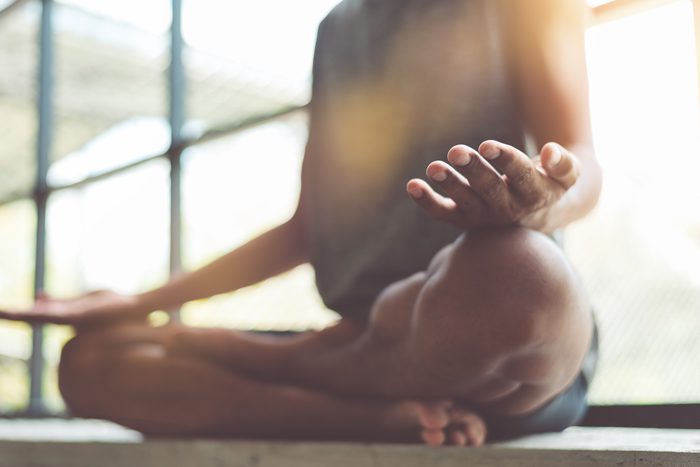 The journey of recovery can be incredibly transformative. Changes in our bodies, our relationships, and our lifestyle become the norm when adapting to life after residential treatment. Accepting and embracing these behavioral and social changes is key to achieving your sobriety goals. Choosing appropriate activities that support your recovery is an essential part of this process.
The journey of recovery can be incredibly transformative. Changes in our bodies, our relationships, and our lifestyle become the norm when adapting to life after residential treatment. Accepting and embracing these behavioral and social changes is key to achieving your sobriety goals. Choosing appropriate activities that support your recovery is an essential part of this process.
Activity Choices Are Important
Sometimes we become so comfortable in our day-to-day routines that we fail to see how our activities may not integrate well into a sober lifestyle. Activities to give up include those that activate your triggers and cravings. It is important to be honest about your triggers. Know which activities lead to situations, emotions, or people that make you want to use again. Then, eliminate or modify those activities and look for new ones that will support your well-being.
Here Are Some Ideas
Below is a collection of eight categories of activities that can be enjoyed alone or with friends, family, or even pets. This list provides insight into the variety of emotional states experienced by those in recovery as well as sober activities that support these emotional states.
- For those who seek a thrill. Recovery can feel boring, especially at first. Going to an amusement park, playing a game like laser tag, taking an intense fitness class like boxing or spin cycling, or going to an arcade or game room may provide a welcome sense of thrill and enjoyment. You may also want to try outdoor activities such as rock climbing, mountain biking, snowboarding or skiing to get that adrenaline rush you may be looking for. Research suggests that spikes of adrenaline could have a significant effect on our mood regulation and overall happiness.
- For those who like to learn. There are many mentally stimulating ways to fill your weekends, such as signing up for an academic course (many are free), learning a new language, or listening to audiobooks and podcasts. You can develop new skills like gardening, cooking, or computer programming. You can fill your time with reading or puzzles. Any of these pursuits can provide the mental workout you may be craving while also providing new social outlets. Don’t forget, exercising your brain is just as important as exercising our bodies.
- For those who love nature. Much research has been conducted lately on the various health benefits of nature exposure, or as it is sometimes referred to, forest bathing. This practice of integrating yourself into any natural setting, from a local park to a trail on the side of a mountain, may help alleviate nervous tension in the present moment and support the overall fitness of our stress response. Try going for a gentle walk around your neighborhood or exploring local parks and hiking trails.
- For those who enjoy art and history. Often there are many historical monuments or landmarks right in our backyards, and we don’t even know it. If you enjoy history, then exploring your local museums or just walking around your area with an old map can provide hours of entertainment. Don’t forget your camera so you can share your discoveries with family and friends! There are also great resources for exploring international wonders through virtual tours so you don’t even have to leave the house!
- For those looking for a community. Recovery can sometimes feel like an isolating and lonely process, but it certainly does not have to be. It is easy to access a list of local sports teams, workshops, and community events being hosted in your area through the internet or your local library. You can also connect with local support groups to meet others in recovery. These pursuits can provide a sense of safety and community we all need and deserve.
- For those who need to relax and unwind. Finding peace and quiet sometimes is essential to recovery. Try calming activities such as breath work, meditation, tai chi, or yoga. Each may provide a sense of grounding and balance. Check out this resource for other anxiety-relieving activities you may find enjoyable.
- For those who love to explore. Feeling uneasy about joining trips or vacations that may involve substances is common, but there are other ways to satisfy the wanderlust bug. Technology gives us access to numerous virtual tours and endless collections of photos of beautiful places, allowing us to experience those same spectacular sites enjoyed by friends and family. You can also take charge and plan your own vacation, inviting friends or family who support your sober lifestyle.
- For those who want to give back. Getting involved with an organization or community group that shares your similar passions may provide a greater sense of purpose and value in your life. Local animal shelters, soup kitchens, and community gardens are continuously looking for helping hands and always appreciate the extra support. Research suggests these activities may boost our social well being and help prevent depression.
Great Oaks Is Here to Help
We are each unique and have unique needs. Knowing what makes you feel healthy will help you choose the activities that support your sobriety. Please reach out to our team at Great Oaks Recovery Center with any comments, questions, or concerns regarding your own or a loved one’s recovery process.


